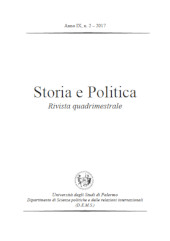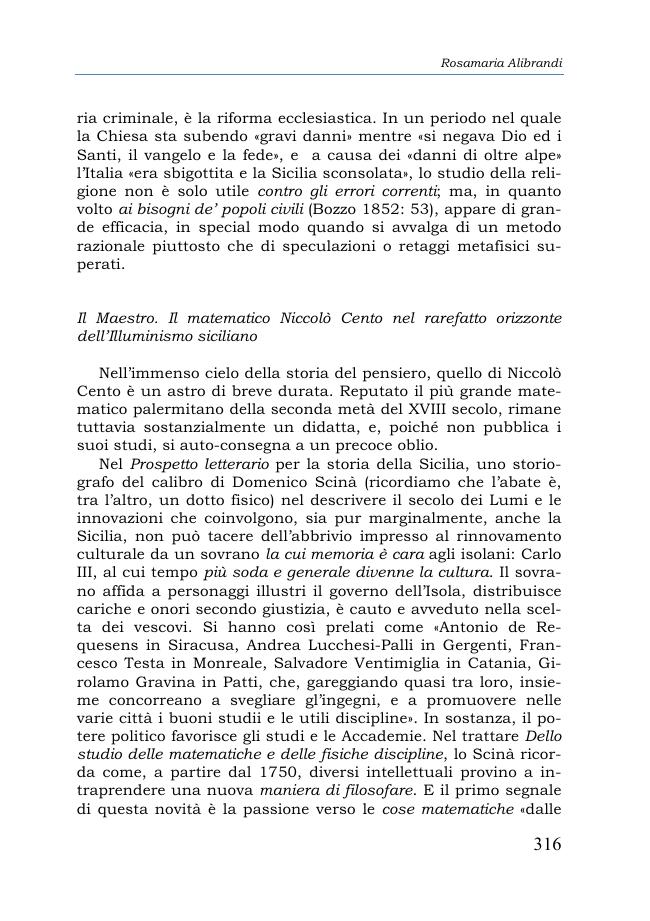Riflessi dei Lumi in Sicilia tra politica e diritto, filosofia e matematica
300-332 p.
During the Eighteenth century Italian illuministi collaborated with the governments, particularly in Naples. More than ever before, academies and scientific societies dominated institutional science and scientist were often charged with governmental functions, while it also seemed essential that the great advances could be achieved only by teaching science and mathematics systematically and improving the instructional system. In Sicily the mathematician Niccolò Cento became the enlightened master of a generation, and formed young intellectuals such as the jurist Tommaso Natale, who supported political and civil education addressing the reform of the judicial system and criminal codes. He was influenced, through the teaching of Cento, by the doctrine of Leibniz. Another Cento's pupil, the theologian Antonino Barcellona, moved many critics to the ancient translation of Holy Scriptures; he set down true interpretation according to the Hebrew language, advocating innovative philosophical and theological theories.
Their common master, Niccolò Cento, specified concepts of great methodological interest. His work didn't produce the expected results because Sicilian Enightenment culture was lacking of a deep hinterland, valid to the development of the proposed theoretical project: so it didn't overcome a narrow space storm, flowing then in the early nineteenth-century conservatism. The brief season of the Enlightenment, despite the theoretical efforts of some Sicilian thinkers, was never able to secure real changes within the future, neither really involved strengths able to remove the legacy of the past. [Publisher's text].
-
Articles from the same issue (available individually)
-
Information
ISSN: 2037-0520
KEYWORDS
- Enlightenment, Niccolò Cento, Tommaso Natale, Antonino Barcellona, Mathematics and Science in the XVIII century



